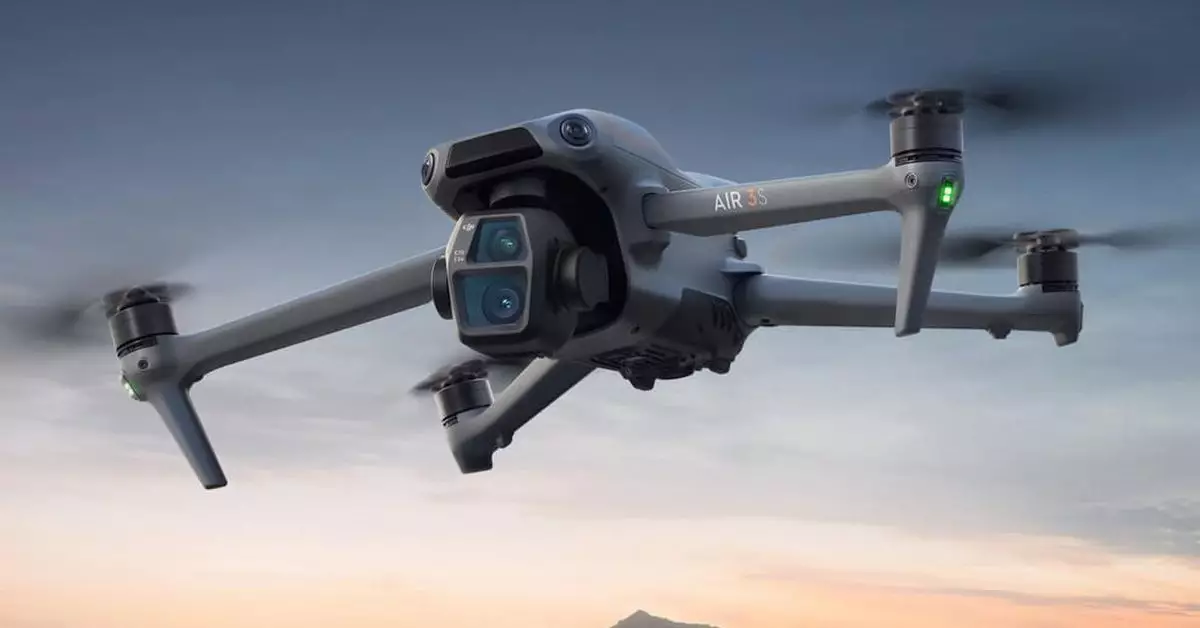The world of consumer electronics has often been a battleground for geopolitical tensions, and DJI, the renowned drone manufacturer from China, finds itself in the crossfire. The latest developments surrounding DJI touch on not just consumer access to innovative technology, but also broader concerns around international trade, regulatory hurdles, and human rights. As the company prepares to release its flagship commercial drone, the Air 3S, a plethora of complications related to imports into the United States has emerged, raising profound questions about the interconnectedness of technology and politics.
Regulatory Roadblocks and Their Implications
At the heart of the matter lies the U.S. Department of Homeland Security’s increasing scrutiny of imported products, particularly drones from China. DJI recently announced that the Air 3S would not reach retail channels in the U.S. due to import restrictions, which have been attributed to the Uyghur Forced Labor Prevention Act (UFLPA). This legislation reflects heightened vigilance concerning human rights issues associated with the Xinjiang region, from where numerous concerns about forced labor have arisen. By linking drone imports to this law, U.S. customs authorities are exerting stringent controls over Chinese-made gadgets.
Moreover, DJI has sought to clarify its position, asserting that it does not utilize forced labor in the manufacturing of its products. The company’s documentation, currently under review by U.S. Customs and Border Protection, aims to dispel doubts about its supply chain, stating that all production occurs in either Shenzhen or Malaysia. While DJI insists that it complies with U.S. laws and international standards, the shadows of past sanctions loom large, particularly following its inclusion on the Department of Commerce’s Entity List in relation to alleged human rights violations.
The Response from DJI: A Call for Clarity
In a bid to navigate this complex regulatory landscape, DJI has deemed the situation a “misunderstanding.” Their public communications express a hopeful outlook for expediting the resolution of these import issues. The company’s proactive stance represents an effort to curb customer dissatisfaction and protect their market presence in a key region where drone technology has surged in popularity. However, DJI’s reliance on compliance and documented evidence may not quell the U.S. government’s underlying concerns.
Importantly, the political context cannot be overlooked. The U.S. House of Representatives has contemplated a bill that would restrict DJI drones further, pushing the issue into the limelight of legislative debate. While the Senate has previously removed the outright ban of DJI drones from its version of the National Defense Authorization Act, the situation remains fluid. Lobbying and negotiations could still lead to significant changes that could affect DJI’s operational capacities in the U.S.
The consequences of these import restrictions have a material impact on consumers and retailers alike. DJI has acknowledged that beyond the Air 3S drone, various segments of its offerings — particularly enterprise and agricultural drones — have faced difficulties accessing the U.S. market, primarily limiting sales to their website. This access barrier restricts customer choice and diminishes the availability of cutting-edge drone technology for both enthusiasts and commercial users.
Consequently, this situation underscores a broader challenge within the tech industry surrounding international trade relations. Should the restrictions lead to a total ban on imports, while existing owners may still use their devices, new sales channels would be irrevocably changed. Furthermore, potential regulations could hinder the technological advancements that tend to drive competition in the drone market, stifling innovation.
Ultimately, DJI’s predicament serves as a microcosm of the larger discourse about national security concerns, technological advancement, and human rights. As governments consider the implications of allowing foreign technologies into their jurisdictions, the boundaries of commerce and ethics become increasingly blurred.
As DJI continues to navigate this turbulent landscape, maintaining transparency and fostering trust with consumers is crucial. The fate of the Air 3S and its subsequent models could serve as a litmus test for the future of drone technology within the U.S. market. The company must remain vigilant and adaptable in an era marked not only by rapid technological progress but also by fierce scrutiny and evolving regulatory frameworks. The complexities of trade, ethics, and surveillance will likely dictate the path ahead, with consequences that could echo throughout the industry for years to come.


Leave a Reply